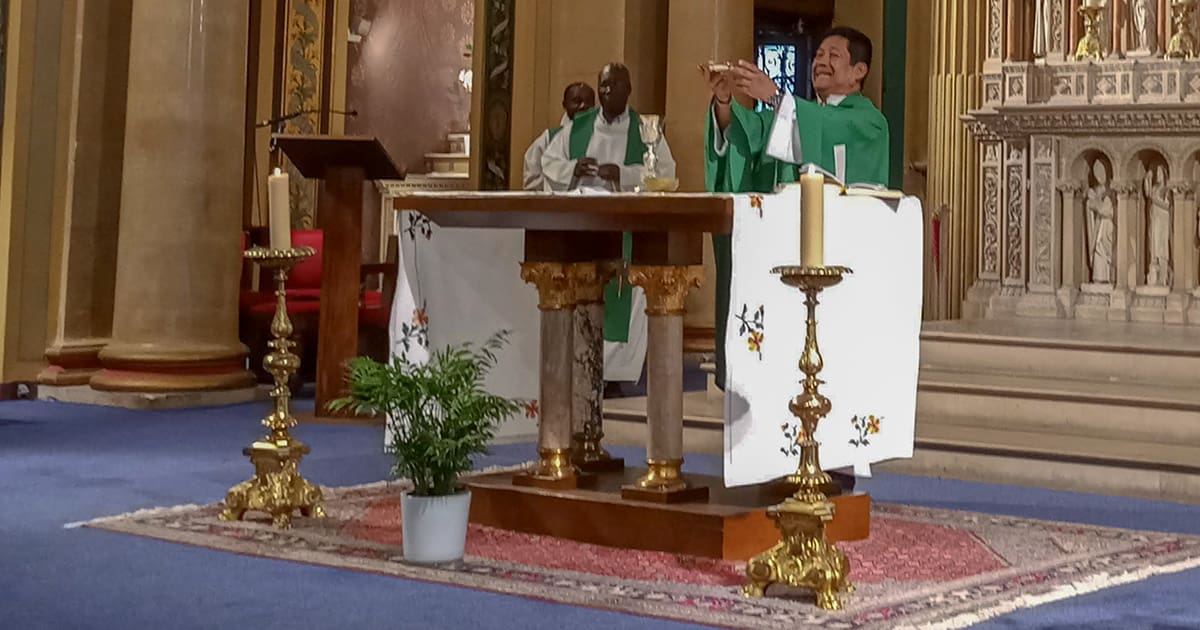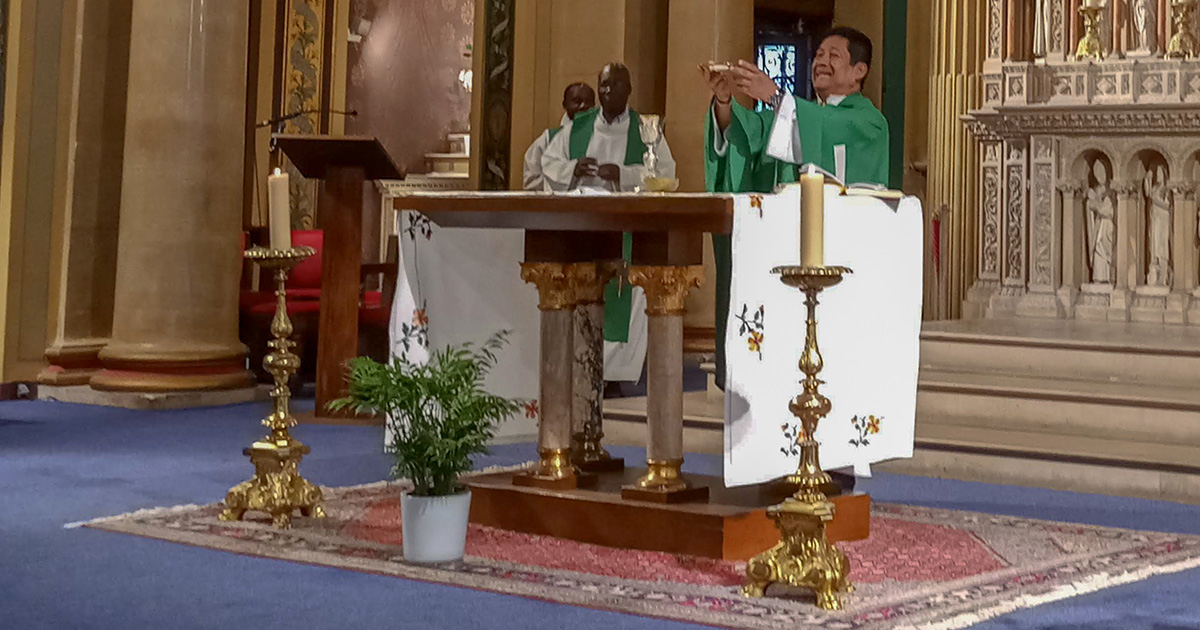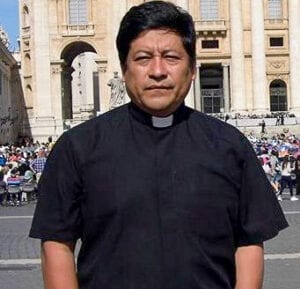Who is My Neighbor?
Homily by Father Ricardo Cruz, CM, Vincentian Family Homeless Alliance ambassador, read on Sunday 14th July in the St Vincent de Paul Chapel in Paris during the ambassadors’ gathering.
“We are to run to the spiritual needs of our neighbor as if we were running to a fire.” (St. Vincent de Paul, XI:25)
Beloved brothers: I thank God for giving me the opportunity to celebrate this Eucharist and to share this training experience to promote creative and sustainable actions in favor of the poor in our towns and cities. To celebrate this Eucharist in the places where Vincent de Paul walked, lived and spent his life is a great motivation and, at the same time, a great commitment.
In the Gospel for today the leading character is the Samaritan who is capable of stopping and taking a risk in favor of the neighbor fallen on the road. Despite this man having a bad reputation (being Samaritan), the Gospel proposes him a model of how to be a neighbor. This man looks with the heart and expresses an extraordinary sensitivity to make his own situation that of the dispossessed. The verbs describing his actions are extraordinary: “he approached, he saw, he felt compassion, he cleaned and dressed the wounds, then he put the man on his own donkey, brought him to an inn and took care of him…” The Samaritan practiced a great mercy and a great solidarity with a stranger to whom he become close. This text leads us to remember Saint Vincent de Paul as the great Samaritan of his time, whose actions in favor of the poor have transcended time and distances. “Saint Vincent was always on the road, open in search of God and himself” (Pope Francis). John Paul II said about him:
Saint Vincent is a modern saint. Certainly, if he returned today, his field of activity would not be the same. He has managed to cure many diseases that he had learned to take care of. But he would surely find the way of the poor, of the new poor, in the urban concentrations of our time, as in the past in the villages. Can one even imagine what this messenger of God’s mercy and tenderness would be capable of undertaking, using with wisdom all the modern means at our disposal? (John Paul II, Letter to the General Superior of the CM, 12-V-1981).
Today the Lord asks us to show the same attitudes and gestures in favor of the invisible and the fallen on the road.
The Gospel is also a call of attention to review, with sincerity, our actions in favour of the poor of today. It is a call to see ourselves in light of the behaviour of the Levite and the priest. They refused to face reality. They took many detours not to look, not to act and not to engage with the fallen. Both knew the Law very well, however their actions show they lost the essence of their mission. The text demonstrates the poor attitudes of both characters. They have forgotten and trivialized their capacity to see and love their neighbor, as the Law says. Both are living an empty religiousness, dehumanised, detached from reality and showing little solidarity. To commit and to involve oneself has risks. Many times, it takes our calm, it creates stress, worries, etc. In this sense, the Gospel is an invitation to see with the heart and to act involving and giving ourselves, not to evade problems, but to be inventive until infinity.
On the other hand, the question asked by the teacher of the Law, to know who the neighbor is (LC 10, 25-37), leads us to say something about the poor: for Vincentians, the fallen neighbor on the road is the poor. The fallen on the road embodies all the poor everywhere, countryside or city. They have a story, and identity, but most of all, they have an unfriendly reality and destiny because society has made them “invisible.” We have to say that they live a double deterioration:
Physical deterioration: the bodily destruction. Their lifetime is much shorter, because they can’t satisfy their basic needs.
Existential deterioration: the impossibility of the poor to feel like people, of being recognized, loved. This prevents them from being an owner of themselves and, for that matter, they live believing they are worthless.
Jesus invites us to make the fallen visible; to stop without hesitation to attend their needs. The temple is important, but the man is even more. Saint Vincent used to say that all chalices should be sold if it was necessary to help the poor. In that sense, we must stop like the Samaritan to recover the sense of charity, fraternity and love for our neighbor. This Gospel is a call to attention: careful with the Christian making detours! The neighbors of today in the framework of the Famvin Homeless Alliance are the homeless, the migrants, the poor, the invisible in society.
Finally, I want to highlight the question of teacher of the Law: What should I do to inherit the eternal life? It is a central question for the disciple of Jesus. But more important than the question is the answer: to love God, the neighbor, as oneself “In the twilight of life, God will judge us on only one thing: how well we have loved.” (St John of the Cross). For Vincentians this answer is translated into Charity and Mission.
Source: https://vfhomelessalliance.org/









0 Comments